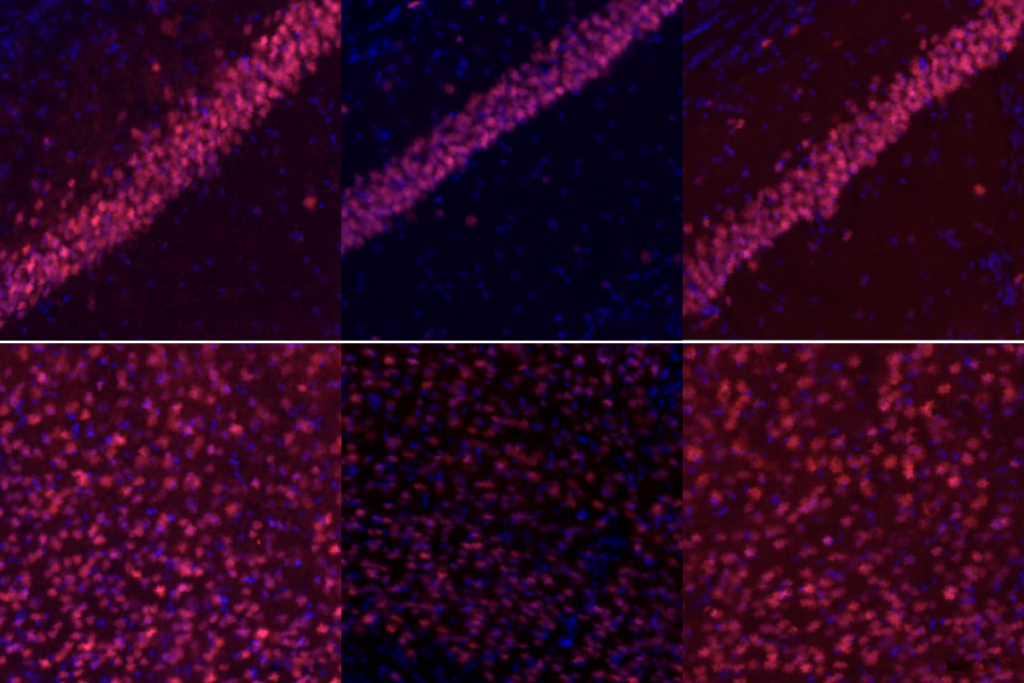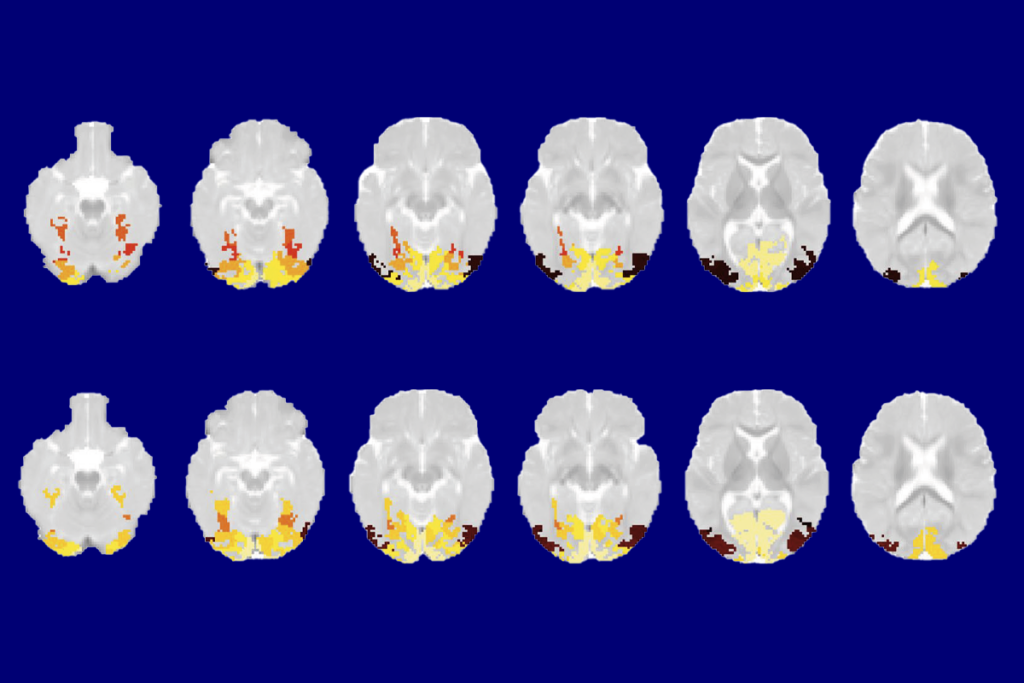Brain Inspired
Recent articles
This podcast, hosted by Paul Middlebrooks, features in-depth conversations with neuroscientists studying natural and artificial intelligence, philosophy, consciousness and other related areas.
Modern AI is simply no match for the complexity likely required for harboring consciousness, says Jaan Aru
He argues that our brain’s computations are of a completely different nature than any artificial intelligence because they take place across many spatial and temporal scales and are inextricably entwined with biological materials.
Modern AI is simply no match for the complexity likely required for harboring consciousness, says Jaan Aru
He argues that our brain’s computations are of a completely different nature than any artificial intelligence because they take place across many spatial and temporal scales and are inextricably entwined with biological materials.
Michael Shadlen explains how theory of mind ushers nonconscious thoughts into consciousness
All of our thoughts, mostly nonconscious, are interrogations of the world, Shadlen says. The opportunity to report our answers to ourselves or others brings a thought into conscious awareness.
Michael Shadlen explains how theory of mind ushers nonconscious thoughts into consciousness
All of our thoughts, mostly nonconscious, are interrogations of the world, Shadlen says. The opportunity to report our answers to ourselves or others brings a thought into conscious awareness.
Tomaso Poggio on his quest for theories to explain the fundamental learning abilities of brains and machines
Thus far, engineering has outpaced theory in the science of intelligence. But Poggio is hopeful that theories can catch up.
Tomaso Poggio on his quest for theories to explain the fundamental learning abilities of brains and machines
Thus far, engineering has outpaced theory in the science of intelligence. But Poggio is hopeful that theories can catch up.
Alex Maier argues that a scientific explanation of consciousness requires grounding in formalized mathematics
When it comes to discovering laws of nature for consciousness similar to those in physics, Maier argues that integrated information theory is the only game in town.
Alex Maier argues that a scientific explanation of consciousness requires grounding in formalized mathematics
When it comes to discovering laws of nature for consciousness similar to those in physics, Maier argues that integrated information theory is the only game in town.
Can neuroscientists decode memories solely from a map of synaptic connections?
Five experts discuss the progress, possibilities and hurdles of decoding a “nontrivial” memory from an organism just by analyzing its brain connectivity patterns.
Can neuroscientists decode memories solely from a map of synaptic connections?
Five experts discuss the progress, possibilities and hurdles of decoding a “nontrivial” memory from an organism just by analyzing its brain connectivity patterns.
Tatiana Engel explains how to connect high-dimensional neural circuitry with low-dimensional cognitive functions
Neuroscientists have long sought to understand the relationship between structure and function in the vast connectivity and activity patterns in the brain. Engel discusses her modeling approach to discovering the hidden patterns that connect the two.
Tatiana Engel explains how to connect high-dimensional neural circuitry with low-dimensional cognitive functions
Neuroscientists have long sought to understand the relationship between structure and function in the vast connectivity and activity patterns in the brain. Engel discusses her modeling approach to discovering the hidden patterns that connect the two.
Does AI understand what it produces? Henk de Regt explores how we might assess understanding in machines and humans
Building on his philosophy of how scientists understand what they work on, de Regt is extending his approach to test understanding in machines.
Does AI understand what it produces? Henk de Regt explores how we might assess understanding in machines and humans
Building on his philosophy of how scientists understand what they work on, de Regt is extending his approach to test understanding in machines.
Daniel Nicholson discusses how Schrödinger’s book ‘What is Life?’ shaped years of biology, research
Combing through historical archives, Nicholson discovered what drove Erwin Schrödinger to pen “What Is Life,” his famous "little book": Schrödinger feared that new discoveries in quantum physics would influence how we think about free will.
Daniel Nicholson discusses how Schrödinger’s book ‘What is Life?’ shaped years of biology, research
Combing through historical archives, Nicholson discovered what drove Erwin Schrödinger to pen “What Is Life,” his famous "little book": Schrödinger feared that new discoveries in quantum physics would influence how we think about free will.
Vicente Raja brings ecological psychology concepts to neuroscience
He suggests neuroscientists should pay more attention to the principles of Gibsonian ecological psychology, such as affordances, ecological information and resonance, to better explain perception and action.
Vicente Raja brings ecological psychology concepts to neuroscience
He suggests neuroscientists should pay more attention to the principles of Gibsonian ecological psychology, such as affordances, ecological information and resonance, to better explain perception and action.
Nikolay Kukushkin discusses his book, ‘One Hand Clapping: Unraveling the Mystery of the Human Mind’
He explains how meaning arises in the interactions found throughout nature and evolution, from molecules to minds.
Nikolay Kukushkin discusses his book, ‘One Hand Clapping: Unraveling the Mystery of the Human Mind’
He explains how meaning arises in the interactions found throughout nature and evolution, from molecules to minds.
Explore more from The Transmitter
Marcelle Lapicque: A forgotten pioneer in neuroscience
Lapicque was the first Black woman neuroscientist in Europe, new research suggests.
Marcelle Lapicque: A forgotten pioneer in neuroscience
Lapicque was the first Black woman neuroscientist in Europe, new research suggests.
In-vivo base editing in a mouse model of autism, and more
Here is a roundup of autism-related news and research spotted around the web for the week of 23 February.

In-vivo base editing in a mouse model of autism, and more
Here is a roundup of autism-related news and research spotted around the web for the week of 23 February.
Infant visual system categorizes common objects by 2 months of age
Brain activity patterns in the ventral visual cortex appear to distinguish images across 12 categories, including birds and trees, longitudinal functional MRI scans suggest.

Infant visual system categorizes common objects by 2 months of age
Brain activity patterns in the ventral visual cortex appear to distinguish images across 12 categories, including birds and trees, longitudinal functional MRI scans suggest.